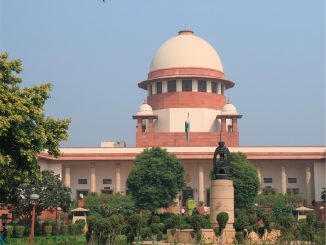
In a bid to reduce aggregate technical and commercial (AT&C) losses and improve their operational efficiency, various distribution utilities have adopted the distribution franchise (DF) model. While some have been successful, others have not been able to yield the desired results and hence have been discontinued. DF models have evolved over time, from collection-based to input-based franchises, input-based franchisee incremental revenue sharing and input-plus investment-based franchises. There are currently 14 DFs operating in the country across five states – Maharashtra, Uttar Pradesh, Odisha, Rajasthan and Bihar.
Power Line takes a look at recent developments in the DF space…
Recent awards
The first franchise was awarded in 2006 to Torrent Power for Bhiwandi in Maharashtra. The award of only 14 franchises in over 10 years indicates that this has not been a very popular concept. However, the model regained attention with the launch of the Ujwal Discom Assurance Yojana in 2015, which is aimed at reducing AT&C losses to 15 per cent.
In line with this, Rajasthan has adopted the DF model. Its discoms have awarded four franchises since June 2016. Three of these – in Kota, Bharatpur and Bikaner – have been secured by CESC Limited, while the Ajmer franchise has been secured by Tata Power Company Limited. All the four franchises have been awarded for a period of 20 years. CESC commenced power distribution in Kota, Bharatpur and Bikaner in September 2016, December 2016 and May 2017 respectively. The Ajmer franchise was the last one to be awarded, in April 2017, and Tata Power commenced operations in July 2017.
Meanwhile, the franchise agreement for power distribution in Bhiwandi between Maharashtra State Electricity Distribution Company Limited (MSEDCL) and Torrent Power Limited (TPL) expired in January 2017 and was renewed for another 10 years, with effect from January 26, 2017. In 2017, three discoms in Madhya Pradesh appointed Feedback Energy Distribution Company Limited (FEDCO) as the management operator.
New bids
In May 2017, GRIDCO Limited invited bids for appointing distribution franchises in six circles – Bargarh, Bolangir, Aska, Bhanjannagar, Baripada and Jajpur. The proposed term for these franchises is 15 years and the broad scope of activities to be undertaken by the franchisees include meter reading, billing and collection for all LT and HT consumers (except dedicated consumers at the 33 kV voltage level), energy audit, AT&C loss reduction, and operations and maintenance of distribution assets at the 11 kV voltage level and above. While the initial date of bid submission was July 17, 2017, the date was extended several times owing to various clarifications sought by the bidders. The last date for the submission of bids was February 1, 2018.
On February 4, 2018, MSEDCL invited bids for input-based franchises in Shil, Mumbra and Kalwa subdivisions, Akola urban division and Malegaon town.
Other developments
The Odisha franchises (see table), awarded in 2012-13 for a period of five years, were due to expire in March 2018. The agreements have already been extended till June 2018 and are being considered for further extension. However, the franchisees have not been able to achieve the specified targets. As per the agreements, the AT&C losses had to be brought down to 15 per cent, but they continue to be over 50 per cent. Meanwhile, South Bihar Power Distribution Company Limited has decided to terminate the franchise given to SPML Infra Limited for power distribution in Bhagalpur owing to the non-fulfilment of certain clauses in the contract.
Outlook
One of the major deterrents to the adoption of DFs has been consumer resistance to the private sector. However, sector experts believe that private participation can help in improving the operational performance of the distribution segment. As such, the DF model helps discoms in bringing down losses, offers business opportunities to private players and enhances services to consumers. A number of private players including CESC and India Power have expressed their interest in obtaining more franchises. Going forward, the performance of the existing and recently awarded franchises will determine the future of this model.




